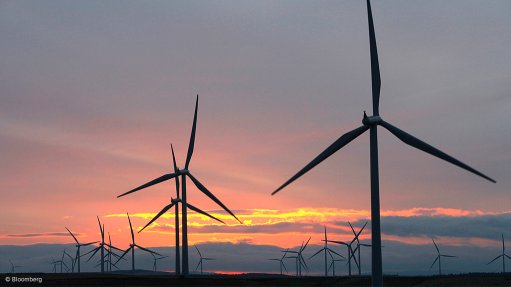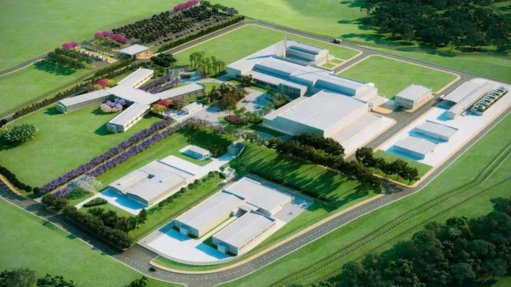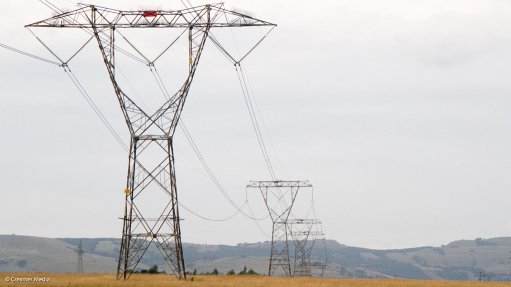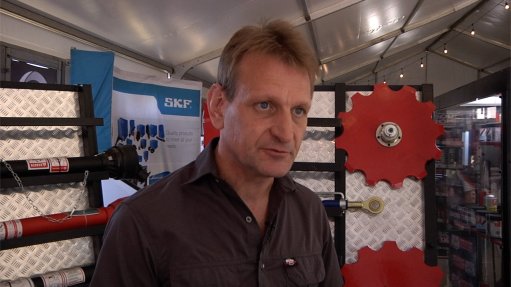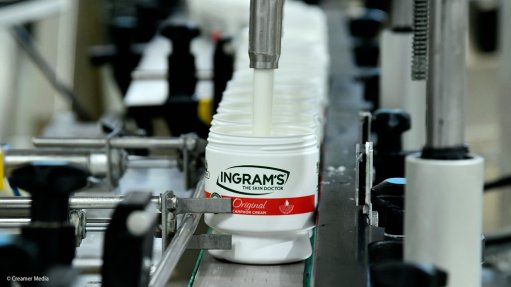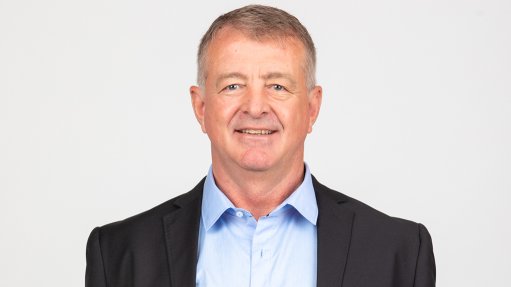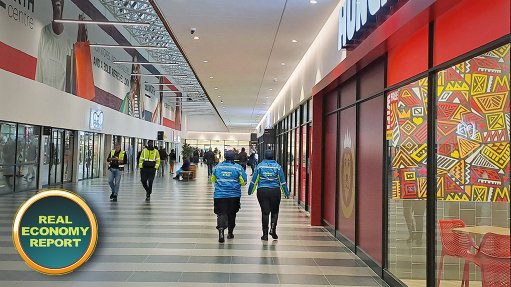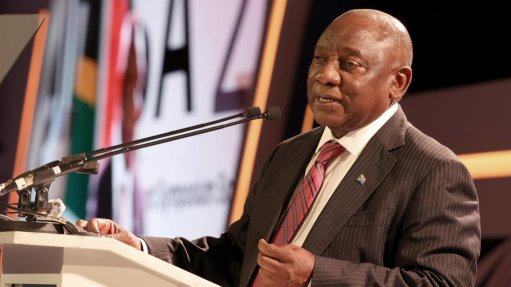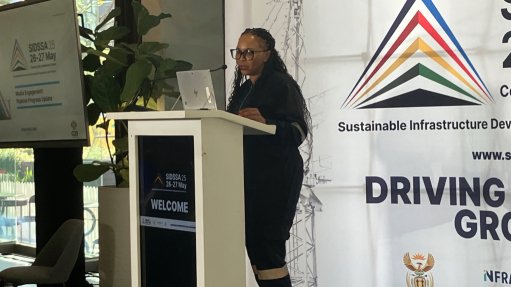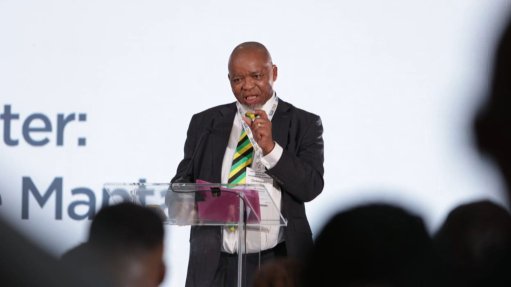ExxonMobil urges more gas investment
PERTH (miningweekly.com) – The Victorian and New South Wales governments were facing a "challenge" to secure gas supplies without lifting existing moratoriums on new production, federal Resources Minister Madeleine King conceded this week.
In response to a question during an interview with ABC Radio regarding the Victorian government needing to lift the moratorium of gas production from certain fields, King said it was up to the state governments to take those decisions.
“It’s really up to the Victorian government to decide how they will pursue energy security for manufacturing and domestic consumers. And I respect the efforts of the Victorian government, which have been really superb, to introduce offshore wind, onshore wind and solar. But they’ve clearly got a challenge, as has New South Wales.”
The Minister’s comments come days after ExxonMobil Australia commercial director David Berman told delegates at the Australian Domestic Gas Outlook conference that new gas production would be needed to meet demand in southern Australia.
“It has been encouraging to see some governments and regulators acknowledge that it is not possible to send more Queensland gas to the southern states at the time it is needed most. Peak southern state winter demand exceeds 2 000 TJ/d and the pipeline infrastructure which connects Queensland to the southern states already largely operates at full capacity moving gas south during winter.
“Today we have a three-lane highway that can move gas from Queensland to the southern states and committed upgrades mean that by winter next year it will be a four-lane highway. But just keeping up with the forecast decline in southern state production requires adding another lane every year for the next decade. That is not economic, nor is it even possible, and so because pipelines from Queensland at full capacity can supply less than 20% of peak southern state demand it is clear investing in new sources of gas supply to the southern states is the only sustainable way to both ensure reliable supply and apply downward pressure on price,” Berman said.
Berman said that by 2027, recently executed projects, projects currently in execution and currently unsanctioned projects all exceed by a wide margin the incremental capacity of the gas that could be delivered to the South-East Australia gas market from announced South West Queensland Pipeline and Moomba to Sydney Pipeline expansions.
However, the most material contribution to daily capacity in 2027 currently remains unsanctioned.
“While the recent, current and possible future investments in domestic gas supply by ExxonMobil and our joint venture partners have been and will remain critically important to the market, it is also the case that the broader supply-side response has been below expectation,” he said.
Berman said that one of the hurdles to investment was the delay in obtaining drilling permits.
“In the US, it takes one month or less to apply for and receive an onshore drilling permit, and less than two months to apply for and receive an offshore drilling permit. In Australia it takes 24 months for both, and it continues to head in the wrong direction.
“We support a careful and diligent approach to regulation, however, this unnecessary erosion of our national competitive advantage has implications beyond just gas markets and will make the energy transition more difficult and more expensive than it needs to be,” Berman said.
Berman has, meanwhile, warned that supply from the Gippsland Basin joint venture (JV) was waning without further development of the gasfield.
“Although the Gippsland Basin JV remains the largest supplier of gas to the east coast domestic market, offshore capacity continues to decline,” he said.
“Today we have 68 wells producing to six gas platforms supplying three onshore gas plants. We can still vary the offshore field mix to meet demand, and this has meant Longford has not had a day without production since 2017. But achieving this requires careful field management, and once Snapper is depleted, likely within the next 12 to 24 months, it will no longer be able to perform that vital role.
“As more legacy fields cease production in the future, we will need to continue to match onshore capacity with reduced offshore capacity, both to continue to produce gas at a competitive cost but also to maintain system process stability.
“By next winter we expect to have 36 wells producing to six gas platforms supplying two onshore gas plants, a 70% reduction in the number of producing wells since 2010.
“In the past, offshore capacity was provided by strong water drive fields. With the continued decline of water drive reservoirs such as Snapper and Barracouta the production system will also become more reliant on offshore compression.
“The consequence of these changes is the Gippsland Basin JV’s ability to step in and supply the market in the way it has in the past will be reduced,” Berman warned. ![]()
Comments
Press Office
Announcements
What's On
Subscribe to improve your user experience...
Option 1 (equivalent of R125 a month):
Receive a weekly copy of Creamer Media's Engineering News & Mining Weekly magazine
(print copy for those in South Africa and e-magazine for those outside of South Africa)
Receive daily email newsletters
Access to full search results
Access archive of magazine back copies
Access to Projects in Progress
Access to ONE Research Report of your choice in PDF format
Option 2 (equivalent of R375 a month):
All benefits from Option 1
PLUS
Access to Creamer Media's Research Channel Africa for ALL Research Reports, in PDF format, on various industrial and mining sectors
including Electricity; Water; Energy Transition; Hydrogen; Roads, Rail and Ports; Coal; Gold; Platinum; Battery Metals; etc.
Already a subscriber?
Forgotten your password?
Receive weekly copy of Creamer Media's Engineering News & Mining Weekly magazine (print copy for those in South Africa and e-magazine for those outside of South Africa)
➕
Recieve daily email newsletters
➕
Access to full search results
➕
Access archive of magazine back copies
➕
Access to Projects in Progress
➕
Access to ONE Research Report of your choice in PDF format
RESEARCH CHANNEL AFRICA
R4500 (equivalent of R375 a month)
SUBSCRIBEAll benefits from Option 1
➕
Access to Creamer Media's Research Channel Africa for ALL Research Reports on various industrial and mining sectors, in PDF format, including on:
Electricity
➕
Water
➕
Energy Transition
➕
Hydrogen
➕
Roads, Rail and Ports
➕
Coal
➕
Gold
➕
Platinum
➕
Battery Metals
➕
etc.
Receive all benefits from Option 1 or Option 2 delivered to numerous people at your company
➕
Multiple User names and Passwords for simultaneous log-ins
➕
Intranet integration access to all in your organisation






